Question And Answer
Publications
Articles, publications, books, tools and multimedia features from the U.S. Institute of Peace provide the latest news, analysis, research findings, practitioner guides and reports, all related to the conflict zones and issues that are at the center of the Institute’s work to prevent and reduce violent conflict.
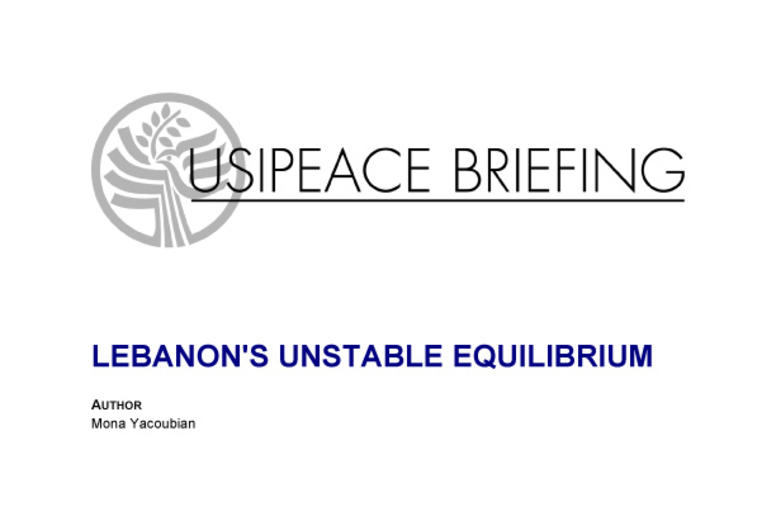
Lebanon's Unstable Equilibrium
Overview In the wake of Lebanon forming a new government, USIP assesses how the country can ensure ongoing political progress and stability. About the Author This USIPeace Briefing was written by Mona Yacoubian, a special adviser for the Muslim World Initiative at the Center for Conflict Analysis and Prevent at the United States Institute of Peace.
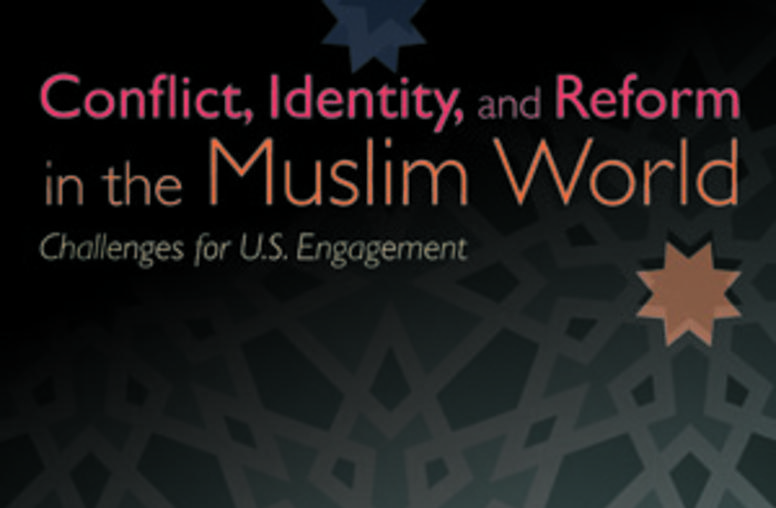
Conflict, Identity, and Reform in the Muslim World
Conflict, Identity, and Reform in the Muslim World highlights the challenges that escalating identity conflicts within Muslim-majority states pose for both the Muslim world and for the West, an issue that has received scant attention in policy and academic circles.
Lebanon's Parliamentary Elections
Lebanon's pro-Western bloc, known as the "March 14" coalition, will retain control of the country's government despite a strong challenge from a Hezbollah-dominated alliance, according to results from the June 7 parliamentary elections. USIP's Mona Yacoubian examines the electoral results, and what they suggest about support for Hezbollah, and the country's future direction.
Lebanon’s Parliamentary Elections:
The June 7th parliamentary elections mark another important step in Lebanon’s postcivil war transition. The Cedar Revolution opened a new chapter in Lebanese history, inaugurating the end of outright Syrian hegemony. The mass protest movement mobilized following the February 14, 2005, assassination of former Prime Minister Rafiq Hariri forced the Syrian military to withdraw in April 2005 after thirty years of occupation.
On the Issues: Women, Conflict, and Peacebuilding
Over the past 15 years, USIP has supported over 90 projects related to women, conflict, and peacebuilding. From grants to fellowships, from training to education, from working groups to publications, the Institute strives to encourage more practice and scholarly work on women, and seeks to deepen understanding of the role of women in conflict and in peace.
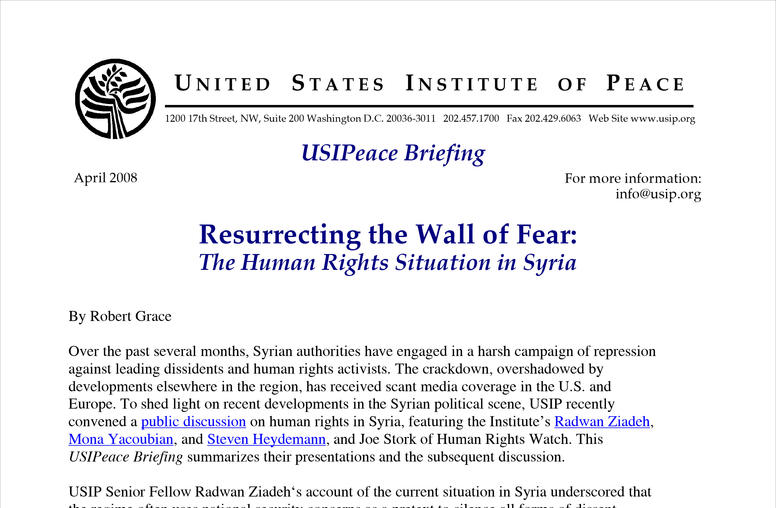
Resurrecting the Wall of Fear: The Human Rights Situation in Syria
Over the past several months, Syrian authorities have engaged in a harsh campaign of repression against leading dissidents and human rights activists. The crackdown, overshadowed by developments elsewhere in the region, has received scant media coverage in the U.S. and Europe.
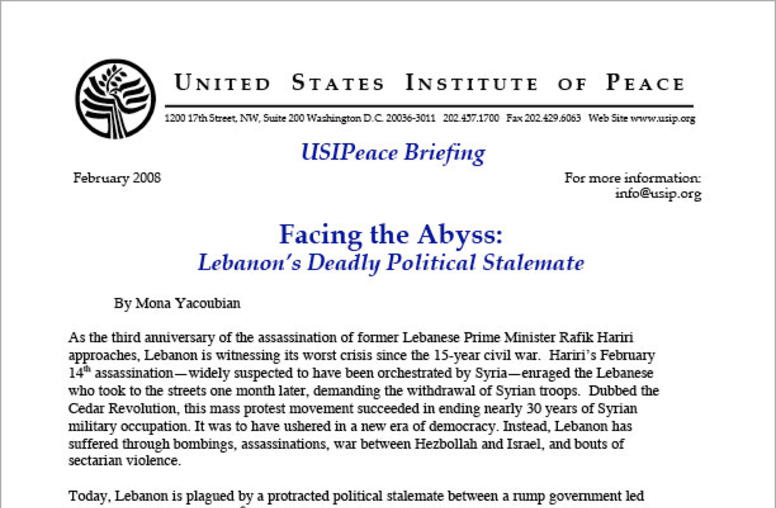
Facing the Abyss: Lebanon's Deadly Political Stalemate
A protracted political stalemate plagues Lebanon. This dangerous deadlock has propelled the country once again toward the abyss of civil war. Will the violence that haunts the country's past recur? Is there a way out?
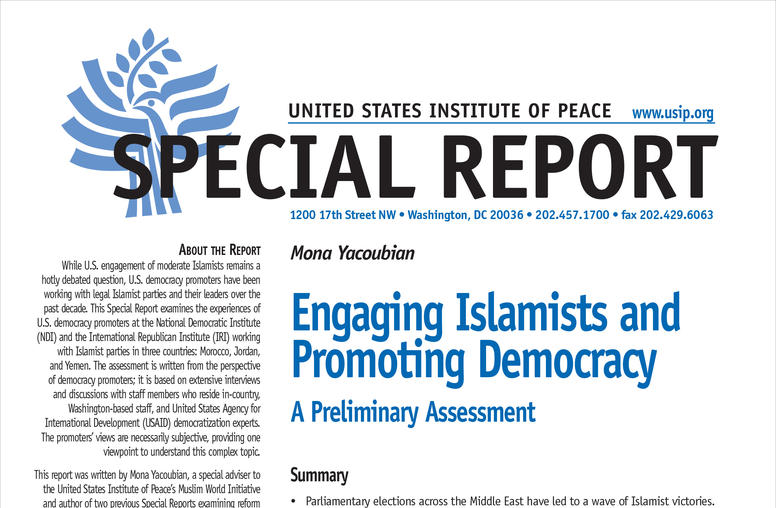
Engaging Islamists and Promoting Democracy: A Preliminary Assessment
While U.S. engagement of moderate Islamists remains a hotly debated question, U.S. democracy promoters have been working with legal Islamist parties and their leaders over the past decade. This Special Report examines the experiences of U.S. democracy promoters at the National Democratic Institute (NDI) and the International Republican Institute (IRI) working with Islamist parties in three countries: Morocco, Jordan, and Yemen.
Syria: Dilemmas of Engagement
Mona Yacoubian addressed the Capitol Hill-based study group "Security for a New Century" on the complexities of U.S. engagement with Syria, both positive and negative.
Syria’s Alliance with Iran
Against a backdrop of growing instability in the Middle East, and despite continued pressure from the West, Syria’s alliance with Iran appears to be holding strong and perhaps even deepening. The United States has strongly criticized both Syria and Iran for contributing to the region’s volatility and, in particular, for playing a destabilizing role in each of three regional conflicts: Iraq, Lebanon, and Palestine.